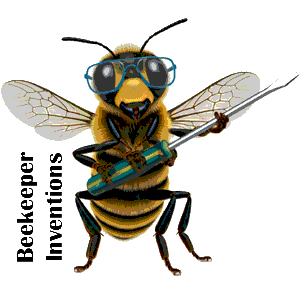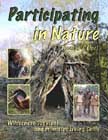|
Mythical Worldview
Agriculture, God, and Conquest
From Roadmap to Reality: Consciousness, Worldviews, and the Blossoming of Human Spirit
 |
"The world of farming is the world of extended time, of making present preparations for a future harvest, of being able to gear the actions of the present toward significant future goals, aims, and rewards. The farmer works not only in and for the present, as does the hunter-gatherer, but also in and for tomorrow, which demands an expansion of his thoughts and deeds and awareness beyond the simple present, and a replacement of immediate impulsive discharges of the body with directed and channeled mental goals. In short,
with the advent of farming, men and women entered an extended world of tense, time, and temporal duration, expanding their life and consciousness to include the future."
--Ken Wilber, Up from Eden |

|
|
The Rise of Second-Person Perspective
The transition from hunting and gathering to farming changed the definition and
experience of reality. Like other creatures of nature, our hunter-gatherer ancestors only had to eat and live. They were rarely self-conscious about being naked, and they did not perceive themselves as separate from the world.
It was only with the rise of agriculture that people learned to see themselves as separate from nature and judge what was right and wrong or good and evil. Agricultural societies were, and are, driven by philosophical principles based on mythical beliefs, rather than facts. Lacking a neutral, third-person perspective (and therefore the ability to engage in critical reasoning) the mythical mind perceives issues in terms of right or wrong in comparison to guiding beliefs. There are no in-between or shades-of-grey answers, nor much tolerance for individuality.
 Agricultural/mythical socities are strongly second-person oriented, pressuring people to conform to cultural norms. Strongly mythical cultures are usually governed by theocracies with little or no separation between church and state, much like present-day Iran. With the rise of agricultural states and an implicit hierarchical power structure, men set out to tame the wilds, to make nature bend to human will. They set out to conquer the world and enslave other races, to subdue nature and women and children, and any other man who was less advantaged in life.
Agricultural/mythical socities are strongly second-person oriented, pressuring people to conform to cultural norms. Strongly mythical cultures are usually governed by theocracies with little or no separation between church and state, much like present-day Iran. With the rise of agricultural states and an implicit hierarchical power structure, men set out to tame the wilds, to make nature bend to human will. They set out to conquer the world and enslave other races, to subdue nature and women and children, and any other man who was less advantaged in life.
The mythical worldview propagated a mentality of war and conquest, most notably through European colonialism. As our ancestors conquered tribal peoples around the world, they either converted or killed the heathen savages they subdued. In his book The Discovery and Conquest of Peru, Pedro Cieza de León documented the subjugation of the Inca people by his fellow Spaniards in the 1500s. The conquistadors were not government soldiers as we might imagine, but mercenaries in search of treasure. Pedro de Cieza referred to them simply as "Christians." They marched across Peru, slaughtering Indians by the thousands, raiding their crops, burning villages, capturing women as servants and concubines, and stealing their gold and silver, all while preaching that the Indians should convert to Christianity and live in peace with the Spaniards.
As Captain Francisco Pizzaro told one group of Indians, in the words of Pedro de Cieza, "They should forget their fallacious beliefs and useless sacrifices they made because it was only expedient to honor and serve God with sacrifices of good deeds and not with the shedding of blood of either men or animals. He declared that the Sun they worshipped was no more than an object created to illuminate and preserve the world, and that God Almighty had his seat in the most prominent place in the heavens, and that the Christians worshipped this God, whom they call Jesus Christ. Further if they did the same, He would grant them heaven's glory, and if they refused, He would cast them into hell forevermore."
Notes
1. Ken Wilber. Up from Eden. Quest Books: Wheaton, IL. 1981, 1996. Page 94.
2. Daniel Quinn. Ishmael. Bantam/Turner: New York. 1993. Pages 71 - 72.
3. Pedro Cieza de León. The Discovery and Conquest of Peru. Duke University Press: Durham and London. 1998. Page 122.
|
Next Page: Sequential Worldview

Provocative? Get the whole story!
Order Roadmap to Reality Now
|












